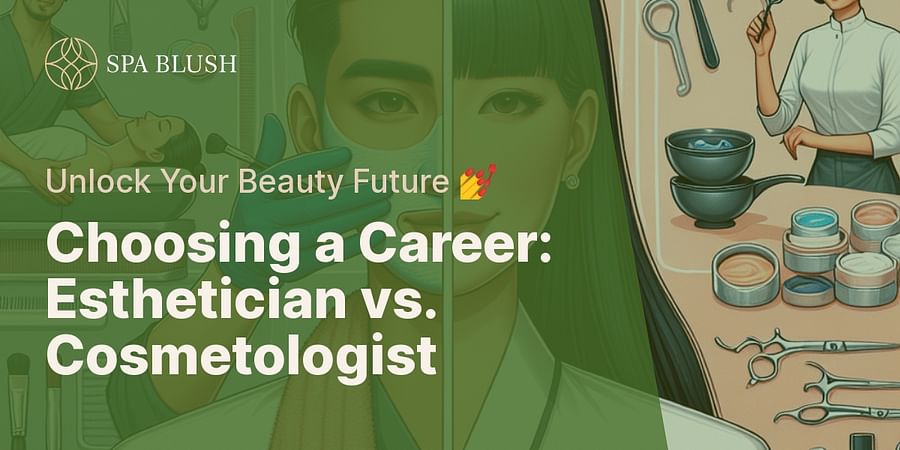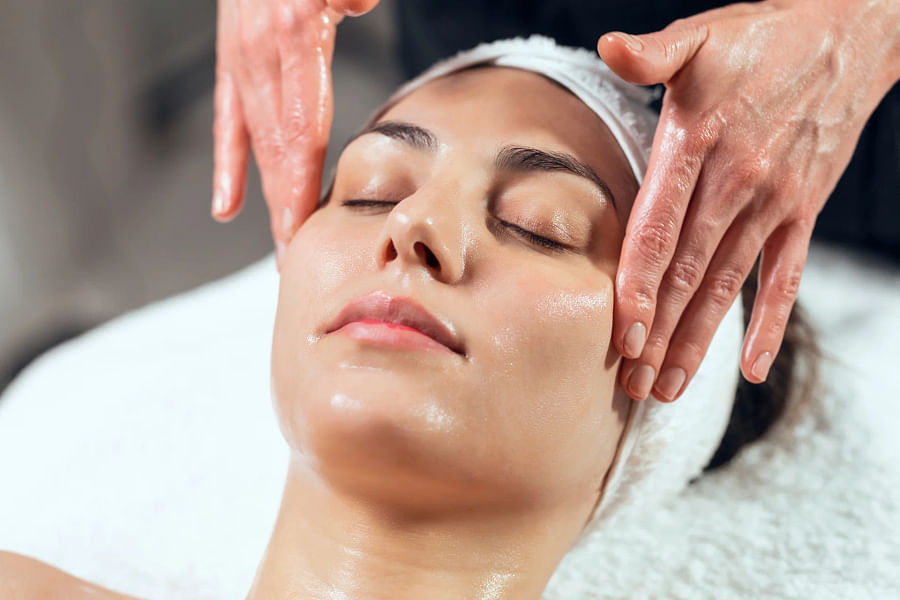Esthetician vs. Cosmetologist: Clarifying the Differences for Career Seekers

Embarking on a career in the beauty industry can be as thrilling as it is bewildering, especially when it comes to distinguishing between the roles of an esthetician and a cosmetologist. Both professions are dedicated to helping clients look and feel their best, but they focus on different aspects of beauty and wellness. As you consider your path in this vibrant field, understanding the nuances between these two careers is crucial.
An esthetician is a skin care specialist who focuses on the health and beautification of the skin. They are trained in a variety of treatments such as facials, chemical peels, microdermabrasion, and more. Estheticians may also perform waxing services and advise clients on proper skin care routines tailored to their individual needs. On the other hand, cosmetologists have a broader range of services they can offer. Their education covers hair cutting, styling, coloring, as well as basic skin care treatments and nail services like manicures and pedicures.
If you're leaning towards a career that allows you to dive deep into the world of skincare and help clients achieve radiant complexions, becoming an esthetician might be your calling. Conversely, if you find yourself drawn to a more varied set of beauty skills that includes hair and nails, cosmetology could be your ideal match.
The educational requirements for estheticians and cosmetologists differ based on their specialized scopes of practice. Esthetician programs typically focus extensively on skin biology, chemistry behind products and procedures, techniques for facial treatments, and mastery in skin analysis. Cosmetology programs are more extensive due to their wider scope; they include all that estheticians learn plus haircare techniques, nail services training, makeup artistry, and sometimes even small business management skills.
Understanding the educational requirements for estheticians and cosmetologists is crucial for those considering a career in beauty and skincare. This quiz will test your knowledge on how the educational paths for these two professions differ.
Prospective students should consider their passion points when choosing between these paths. Are you fascinated by the intricacies of skincare science? Or does the dynamic world where hair color meets makeup artistry excite you? Your answers to these questions can guide your educational journey.
Beyond education lies licensing—a critical step for both estheticians and cosmetologists. Most states require professionals in either field to pass an exam to demonstrate proficiency before they can practice legally. The specifics can vary widely from state to state; therefore it's important for career seekers to research local regulations thoroughly.
Licensing ensures that professionals meet industry standards for safety and skill—vital considerations when working closely with clients' skin or hair. It's not just about passing tests; it's about committing to lifelong learning to remain at the forefront of evolving beauty trends and health regulations.
The settings in which estheticians and cosmetologists work can influence your decision too. Estheticians often find themselves in day spas, medical spas, or dermatology offices where they provide specialized skincare treatments. Some even carve out niches in luxury resorts or aboard cruise ships! Cosmetologists usually work in more diverse environments such as salons, barbershops or even branching out into fashion industry styling teams or theatre productions.






Imagine where you see yourself thriving—is it in a tranquil spa setting focused on holistic skin health or perhaps a bustling salon where every day brings new creative challenges? Your preferred work environment is just as important as your job duties when it comes to job satisfaction.
In conclusion—well actually let’s not get ahead of ourselves! There's still plenty more ground to cover regarding salary expectations, growth opportunities within each field, specializations that might pique your interest even further... But let's save that for later discussions.
The journey to becoming either an esthetician or a cosmetologist begins with education. Estheticians focus on skincare and must complete a specialized program that teaches them about facials, skin physiology, and various skin treatments. After completing their program, they need to pass a state board examination to become licensed.
On the other hand, cosmetologists attend beauty schools where they learn a broader set of beauty services including hair cutting, coloring, and styling, along with basic skincare and makeup application. They also need to pass a state board exam which often includes both written and practical components.
Are you considering a career in skincare and beauty? Test your knowledge about the esthetician career to see if you're on the right track!
It's important for career seekers to understand these differences in education as they reflect the specialized nature of each profession. If you're considering one of these paths, think about where your passion lies. Are you more intrigued by transformative skincare treatments or do you find the artistry of hair and makeup more appealing?
Once licensed, estheticians can work in a variety of settings such as day spas, medical spas, dermatology offices, or even start their own business. They may choose to specialize further in areas like laser treatments, chemical peels or become spa managers.










Cosmetologists often find employment in salons but can also work in spas or as freelancers for weddings and other events. They too can advance their careers by becoming salon owners or educators within beauty schools.
Both careers offer room for growth and specialization. Whether you dream of becoming an expert in anti-aging treatments or aspire to style celebrities' hair, there's a path for you. Explore which role aligns with your interests by taking quizzes like "Esthetician or Makeup Artist: Which Career Suits You Best?" or "Discover Your Esthetician Path".
One crucial aspect that both professions share is the need for licensure which varies from state to state. For instance, some states require more hours of training for estheticians compared to others. Similarly, cosmetologists may find that certain states have reciprocal agreements allowing them to practice without additional licensing exams if they move.
If you're considering crossing state lines for your dream job, it's wise to research the specific requirements in your destination state. Websites like Associated Bodywork & Massage Professionals (ABMP) provide valuable resources on state-specific licensing information for both estheticians and cosmetologists.
Becoming an esthetician or cosmetologist means embracing lifelong learning; trends evolve, new techniques emerge, and clients seek the latest in beauty innovation. Whichever path you choose should reflect not only your interests but also your willingness to grow with the industry. Remember that at Spa Blush we are here not just to inform you but also inspire you on this exciting journey toward professional fulfillment.
Choose the aspect that thrills you the most about diving into the world of beauty and personal care!
Post a comment